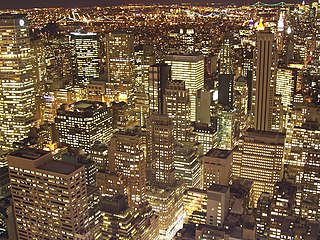There's a saying that 500 square feet in New York City is bigger than 500 square feet anywhere else. That's because you have access to everything, twenty-four hours a day, just beyond your door, from designer handbags to sex shops. There's an expectant feeling in a city—around one corner there's a street musician playing the violin, around the next corner there's a homeless man shouting at you, and you're pushing your stroller through a waft of smoke that isn't from a cigarette.
The small community requires commitment and responsibility. The village makes demands, just like family. They know you. They have expectations. Caroline Ingalls never had girls night out and forgot how many martinis she had or who she danced with. Charles wasn't going out for wings on Friday night with the boys. Their life was centered around the home, represented by the glow of a fire in the hearth.
I will feel “out of it” sometimes, and think about the old days, walking everywhere, going out all the time. But then I experience the city, with trash and cigarette butts in the park, and people drinking out of paper bags at the fountain my daughter wants to play in. There are places selling alcohol, marijuana, and women. There's gay pride events and pro-choice demonstrations. It's very loud and it drowns out peace. And, come to think of it, I didn't have much peace when I lived there. I was kind of a mess.
The city demands tolerance of what you see, here, and smell. Tolerance of every vice known to man on display. You tolerate it, and it becomes normal. I lived across from a rehab facility once, and patients in hospital gowns would scale the fence between apartment buildings to get cans out of the trash for the 5¢ refund. And I was annoyed that they were in the trash, again, while I was trying to sleep. You're not shocked because you have “seen it all” in your cosmopolitan life in the city. You aren't “backwards” like people in the country, who don't see much, but, as I have come to learn, see with much keener vision.
God promises us green pastures, not high rise apartments close to baristas and boutiques, with the middle of the night sirens and drunk people wandering out of bars. He leads us beside still waters, not the ever-flowing taps of an up-and-coming mixologist. He promises quiet. There's a reason rural communities believe in God, and think the city is noisy and dirty. Because it is.
We've flocked to cities after the industrial revolution, and now we see everything, we tolerate all of it, and it becomes normal. The domestic life is what conflicts us, and we put it off, or avoid it all together, and get our degrees and climb our career ladders. There's no one at home, or too many demands at home. The city gives us a chance, though, if we queue up to the bar and pay for that glorious Happy Hour under the bright lights.
***
Ocean Star [CC BY 3.0 (http://creativecommons.org/licenses/by/3.0)], via Wikimedia Commons






